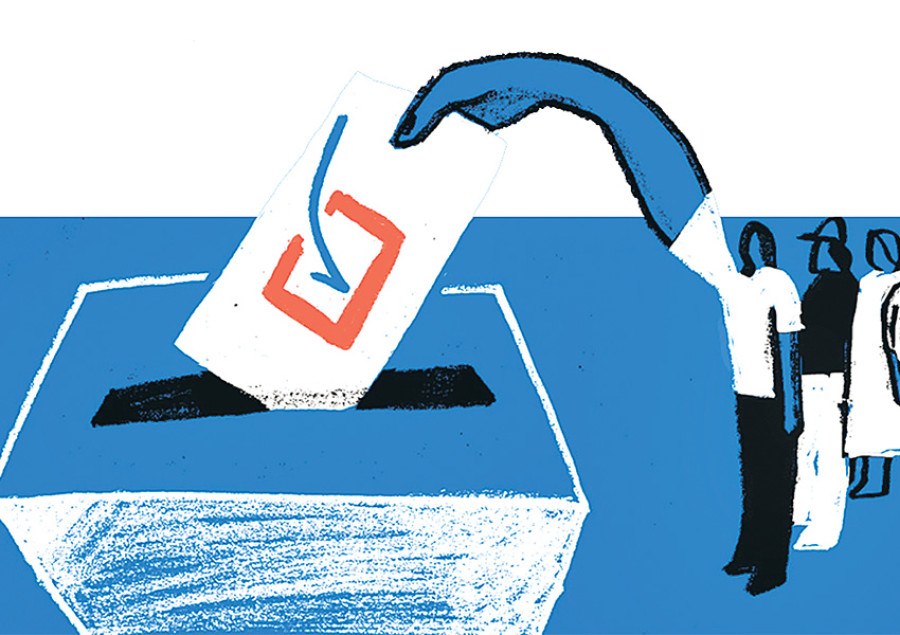Opinion
Grassroots elections
The absence of local-level leaders resulted in multiple problems during relief work after the quake
Binayak Basnyat
Political unpreparedness or ineffective governance after the Great Quake in April has been an issues of great interest to political analysts in Nepal. Students and professors at the Nepal Public Administration Campus, are studying the various aspects of development in Nepal through the lens of effective governance, while much of the attention in Nepali politics has been focused on the delivery of the new constitution. It is now important to work for effective governance at all levels. Professor Keshav Pandey, lecturer Subhash Sharma, and graduate student Sandesh Acharya—who are working on a research titled, ‘Strategising an effective local election: Nepal’—believe that the ineffective governance during the 2015 national emergency was largely because of delayed elections at the local level.
Absent state
Local elections, by establishing local governance bodies, decentralise the government. Just as we elect Members of Parliament to address national concerns, representatives in District Development Committees (DDCs), Village Development Committees (VDCs), and municipality offices handle local issues. During the aftermath of the earthquake, researchers observed that the governance network in the six zones hit hardest by the earthquake was not up to scratch. Many private efforts to provide funds and other aid assistance to victims were ineffective primarily because people could not obtain proper data regarding the people in the affected areas. In rural regions, the local government bodies were not able to identify the people in need from opportunists who abused the relief packages coming in; this left concerned supporters uncertain about whether help was reaching the right hands. The government’s efforts to fill this void by transferring numerous civil servants to the affected areas also proved to be ineffective. The administrative officials were not fully equipped to gather the information. This gave way to anomalies in data, which could now be avoided if the governance network is strengthened through local elections.
Local elections
Since the 1990 Democratic Revolution in Nepal 25 years ago and the 2006 Jana Aandolan, there have only been two local elections, contradicting what political analysts call democratic norms and practices. The last local elections took place in 1997 and an un-updated local political system has loosened the governance network string in the DDCs, VDCs and municipalities across the country.
It will be easier for the government to work effectively across the nation if a good governance network is established. Posts the quake, there have been multiple complaints that assistance distribution has been unequal. This is largely because the governance network is weaker in some places than others. There are some interesting liberal views that researches have collected; when questioned about local elections, some people as old as 30 have suggested that the people should have the right to sack representatives if they are not working up to the required standards. The current trend is that local representatives ignore the aspirations of their voters once they are elected. It is quite clear that an election at the local level is a significant issue that should be considered by the government.
In conclusion, much of the political mismanagement observed after the Great Earthquake was largely an outcome of delayed elections at the local level. This has been confirmed by researchers from the Nepal Public Administration Campus, who have observed that an effective governance network was missing at the local level while distributing aid after the earthquake. All of this points to the fact that local elections are long overdue—delaying these elections showcases un-democratic norms of the Nepali political system. It is necessary to hold local elections because this will give way to decentralisation of power, a method that could install a more effective governance network and strengthen the political system.
Basnyat holds a Masters in Diplomacy and International Studies and is currently affiliated with the Saarc secretariat




 17.9°C Kathmandu
17.9°C Kathmandu











